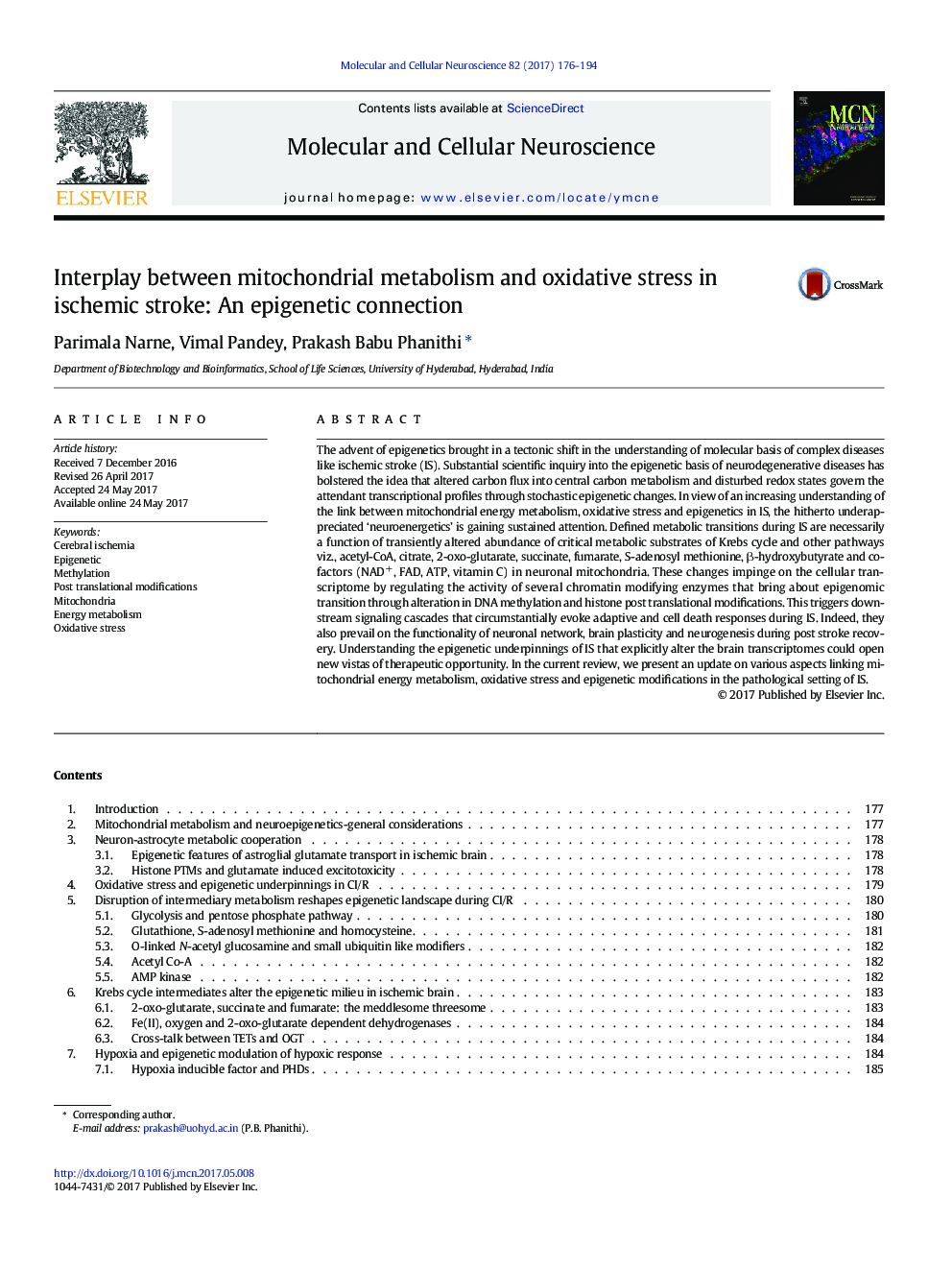| Article ID | Journal | Published Year | Pages | File Type |
|---|---|---|---|---|
| 5534357 | Molecular and Cellular Neuroscience | 2017 | 19 Pages |
â¢Cerebral ischemia/reperfusion launches a metabolic catastrophe primed by disrupted oxidative metabolism in mitochondria.â¢Mitochondrial metabolism and oxidative stress modulate gene expression in ischemic stroke through epigenetic machinery.â¢Altered abundance of cofactors and critical metabolic substrates of Krebs cycle influences the epigenetic architecture.â¢Epigenetic modifications prevail on the functionality of neuronal network, brain plasticity and neurogenesis.â¢Understanding the epigenetic basis of energy dysfunction allows identification of tractable drug targets.
The advent of epigenetics brought in a tectonic shift in the understanding of molecular basis of complex diseases like ischemic stroke (IS). Substantial scientific inquiry into the epigenetic basis of neurodegenerative diseases has bolstered the idea that altered carbon flux into central carbon metabolism and disturbed redox states govern the attendant transcriptional profiles through stochastic epigenetic changes. In view of an increasing understanding of the link between mitochondrial energy metabolism, oxidative stress and epigenetics in IS, the hitherto underappreciated 'neuroenergetics' is gaining sustained attention. Defined metabolic transitions during IS are necessarily a function of transiently altered abundance of critical metabolic substrates of Krebs cycle and other pathways viz., acetyl-CoA, citrate, 2-oxo-glutarate, succinate, fumarate, S-adenosyl methionine, β-hydroxybutyrate and cofactors (NAD+, FAD, ATP, vitamin C) in neuronal mitochondria. These changes impinge on the cellular transcriptome by regulating the activity of several chromatin modifying enzymes that bring about epigenomic transition through alteration in DNA methylation and histone post translational modifications. This triggers downstream signaling cascades that circumstantially evoke adaptive and cell death responses during IS. Indeed, they also prevail on the functionality of neuronal network, brain plasticity and neurogenesis during post stroke recovery. Understanding the epigenetic underpinnings of IS that explicitly alter the brain transcriptomes could open new vistas of therapeutic opportunity. In the current review, we present an update on various aspects linking mitochondrial energy metabolism, oxidative stress and epigenetic modifications in the pathological setting of IS.
